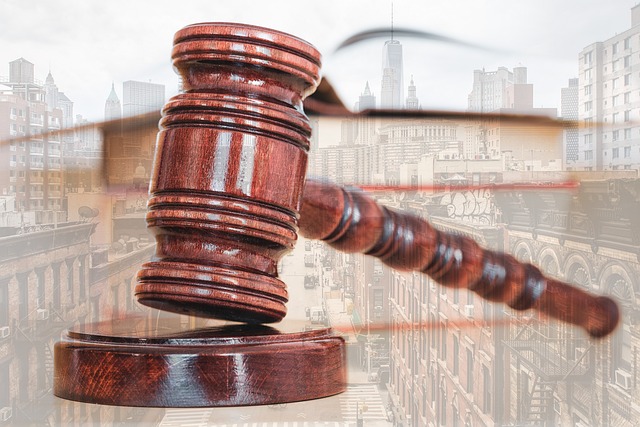Securities Class Actions empower investors to sue companies for defamation of character and securities fraud, aiming to protect rights, ensure market transparency, and hold corporations accountable. Seeking Defamation of Character Legal Advice is vital when facing complex legal defenses, with skilled attorneys developing robust strategies to challenge allegations and achieve favorable outcomes. These actions seek substantial financial compensation and positive market effects while upholding investor rights and market integrity.
“Securities class actions are powerful tools for investors seeking justice. This comprehensive guide delves into the intricate world of these legal battles, empowering individuals with knowledge. We explore the legal framework governing securities lawsuits, from understanding who can file and eligibility criteria to deciphering the complex process.
Key topics include navigating defamation of character issues—a critical aspect requiring strategic defense. Furthermore, we analyze strategies for compensating victims, ensuring fair justice in class action suits. For investors seeking reliable legal advice on defamation of character concerns, this article offers invaluable insights.”
- Understanding Securities Class Actions: A Legal Framework
- Who Can File and What Are the Eligibility Criteria?
- The Process: From Notice to Settlement or Trial
- Defamation of Character: Potential Pitfalls and Defense Strategies
- Seeking Justice: Compensating Victims in Class Action Suits
Understanding Securities Class Actions: A Legal Framework

Securities Class Actions involve a group of investors suing a company and its executives for alleged violations of securities laws. This legal framework is designed to protect investors from fraudulent or misleading conduct in the sale of securities, ensuring fair markets and transparent business practices. When an investor believes they’ve been defamed—or their character slandered—as a result of false or misleading information provided by a company, they may seek legal advice to explore their rights within this class action structure.
These high-stakes cases can have significant implications for both individuals and respective businesses. The collective power of class actions allows investors to hold corporations accountable for misconduct, potentially resulting in substantial financial damages. It’s crucial for companies to maintain accurate disclosures and adhere to regulatory requirements to avoid such legal challenges, which could negatively impact their reputation and bottom line.
Who Can File and What Are the Eligibility Criteria?

Securities Class Actions are legal mechanisms designed to protect investors who have suffered financial losses due to corporate misconduct or securities fraud. In these actions, a group of investors, known as a class, joins together to file a lawsuit against the responsible parties. This collective approach allows for more significant damages and can provide much-needed relief for those affected by unethical practices in the financial markets.
Any individual who has sustained economic injuries resulting from violations of federal or state securities laws can initiate such an action. These include instances like misrepresenting or omitting material facts, making false statements, or engaging in fraud when selling securities. While each case is unique, common eligibility criteria often involve proving reliance on the defendant’s misrepresentations and demonstrating that the respective business practices were a substantial factor in the investor’s losses. Seeking defamation of character legal advice can be crucial for navigating these complex cases, especially when facing sophisticated white-collar defense strategies with an unprecedented track record of success.
The Process: From Notice to Settlement or Trial

The process of securities class actions is a complex journey that unfolds in several stages. It begins when a group of investors, collectively representing a larger pool, identifies potential violations of federal or state laws related to securities and sues the responsible parties. This legal action, known as a class-action lawsuit, aims to provide redress for the financial losses incurred by the affected investors. The initial step involves issuing a notice to all potential class members, informing them about the lawsuit and their rights. This crucial phase ensures that every investor has an opportunity to join or opt out of the litigation.
Following this, the case progresses through various stages, including extensive legal discovery where both sides gather evidence. Plaintiffs’ attorneys work diligently to build a compelling case, while defendants mount a vigorous defense. The process may lead to negotiations and settlements, offering a resolution without proceeding to trial. However, if the case reaches the courtroom, it involves detailed presentations by lawyers, witness testimonies, and extensive legal arguments. The outcome can range from winning challenging defense verdicts to securing favorable settlements, ultimately aiming to protect investors’ rights and ensure accountability for any defamation of character or other misconduct in the securities landscape.
Defamation of Character: Potential Pitfalls and Defense Strategies

Defamation of character is a serious issue that can arise in various contexts, including securities class actions. When false statements are made about an individual or company, it can lead to significant reputational damage and legal consequences. In the high-stakes world of financial litigation, where emotions run high, allegations of fraud, corruption, or misconduct can be easily exaggerated or distorted. This presents a unique challenge for those facing such accusations, as they must navigate complex legal terrain to protect their good name.
Seeking expert legal advice is paramount when addressing defamation of character claims, especially in the context of securities class actions. Skilled attorneys can help individuals and corporations develop robust defense strategies. These may include refuting the allegations with factual evidence, exposing the truth behind the false statements, or demonstrating that the criticism was an honest opinion protected by free speech. Additionally, understanding the jurisdiction’s laws regarding defamation and the specific circumstances of the case is crucial for achieving extraordinary results, whether through settlement negotiations or jury trials, representing both corporate and individual clients.
Seeking Justice: Compensating Victims in Class Action Suits

In securities class action suits, seeking justice for defamed individuals is a crucial aspect of compensating victims. These legal battles aim to right wrongs and provide a platform for those affected by fraudulent or misleading practices to be heard. When investors are subjected to defamation of character, they not only face financial losses but also reputational damage. Skilled attorneys dedicated to these cases understand the complexities involved in proving defamation and offer specialized legal advice tailored to each unique situation.
Through robust representation, class action plaintiffs can achieve winning challenging defense verdicts, ensuring that corporate and individual clients alike are held accountable for their actions. The goal is not only to secure monetary compensation for financial losses but also to set precedents that safeguard investors’ rights and foster integrity in the market. An unprecedented track record of success in such cases demonstrates the effectiveness of strategic legal approaches, empowering victims to seek justice and restore trust in the system.
Securities class actions are a complex legal process designed to hold accountable those who have engaged in fraudulent activities. By understanding the framework, eligibility criteria, and various stages involved, investors can effectively navigate these suits. While defamation of character is a potential pitfall, proper legal advice can help mitigate risks and ensure victims receive just compensation. This comprehensive guide highlights the importance of seeking professional assistance when dealing with class action lawsuits, especially in managing defamation concerns, to ultimately achieve positive outcomes for affected parties.






